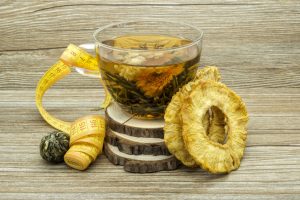 Sad fact of life: our joints have a limited lifespan.
Sad fact of life: our joints have a limited lifespan.
Wear and tear on our joints are inevitable as we age, but the symptoms are either hastened, or delayed due to these factors…
3 factors affecting joint health
Our overall health and well-being – the state of your health as a whole will inevitably affect individual parts of your body. For example, if your are constantly stressed out due to work, it can cause tension in your shoulder muscles, which can lead to bad posture that, if not corrected, can inevitably put strain on your spine. A deformed spine will then strain your back muscles, spreading uneven pressure to all the joints connected to them.
Our individual gene polymorphism – simply put, gene polymorphisms are the unique differences in each of us that are caused by our genes. It determines individual traits like eye or hair color, and is also the reason why some of us are more susceptible to particular diseases or allergies.
Our lifestyle choices – the kind of diet that we have, the amount of exercise that we get, the amount of stress that we are subjected to, bears heavily on our overall health, and therefore, on our joints as well. Things like alcohol and tobacco, high impact exercises, occupational stress have a huge negative impact on our joints.
There is nothing you can do to change your gene polymorphism, but you can certainly strive for better overall health and lifestyle choices.
Given this, what else can we do to keep our joints healthy?
Aside from low-impact exercises, one thing that can directly impact the health of our joints would be dietary supplements. Here we will list some of the most popular joint supplements and how they keep your joints healthy and/or help address any existing problems:
- Fish oil – rich in Omega 3 fatty acids (EPA, DHA), it boosts your immune system, prevents muscle breakdown and keeps inflammation down, reducing arthritis pain.
- Pineapples – rich in bromelain which helps relax muscles and connective tissues, and also helps reduce inflammation.
- Collagen – a protein found in most meats and animal bones, it is said to help in the regeneration of cartilage. However, studies have yet to prove this.
- Ginger – is high in anti-inflammatory compounds called “gingerols” that help reduce arthritis pain.
- Chondroitin sulfate & Glucosamine – chondroitin helps maintain elasticity in cartilage, while glucosamine keeps inflammation down.
- Green tea – contains EGCG, a compound that blocks hazardous molecules such as Prostaglandin E2 that specifically causes joint inflammation.
- Vitamin C – is needed in the production of collagen in the body. It also helps prevent free radicals from breaking down cartilage.
- Tart cherry juice – is high in powerful antioxidants that prevent damage caused by free radicals.
- Vitamin D – is produced in the body through exposure to sunlight, can be found in fish, or in tablet form. Studies have shown it to help cartilage health and is essential for the proper absorption of calcium.
- Calcium – our bones are largely made up of calcium phosphate, and so we need to supplement with calcium to keep our bones from getting brittle.
- Broccoli – is rich in sulforaphane, a compound that has been shown to slow or prevent osteoarthritis.
Remember, most of these compounds, vitamins and minerals need others to be absorbed properly, so having a balanced diet and supplementing greatly helps.